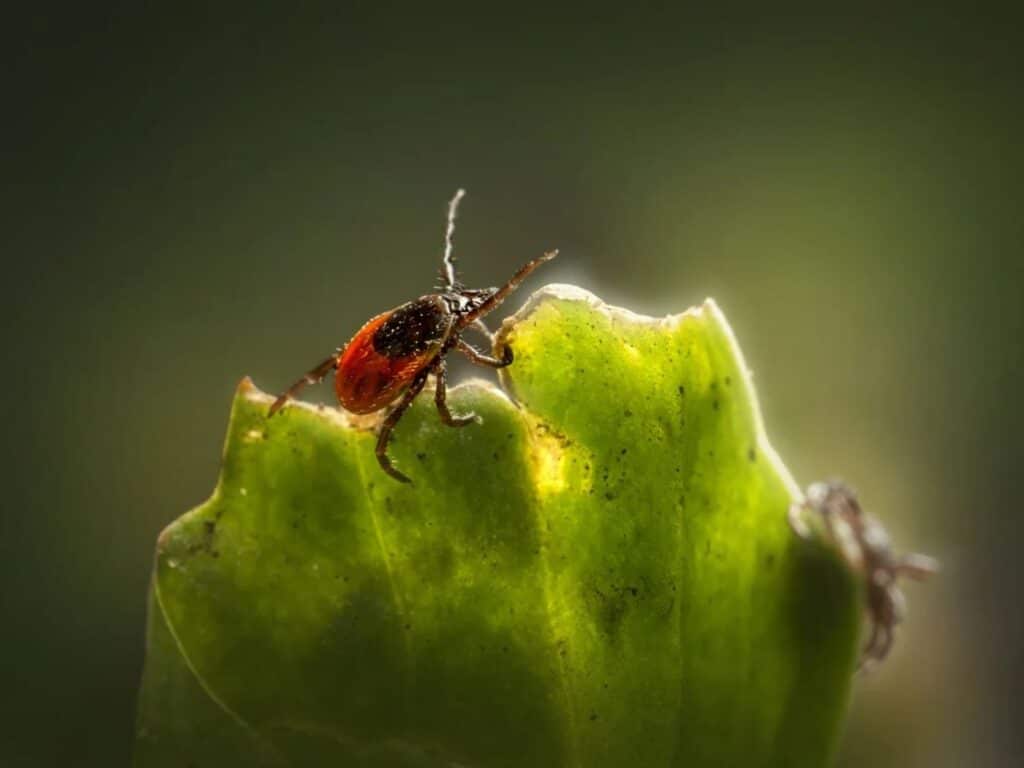Imagine strolling through your garden, only to find tiny, unwelcome guests hitching a ride on your clothes or skin – ticks. These pesky parasites aren’t just annoying; they’re a health hazard, capable of transmitting diseases like Lyme disease.
But don’t worry, nature has a solution. Certain plants can act as natural tick repellents, keeping these pests at bay. So, ready to transform your landscape into a tick-free haven? Let’s explore the power of plants in tick control.
Common Characteristics of Tick-Repelling Plants
This section will dig into the notable traits that make certain plants effective in shunning ticks.
The Role of Essential Oils in Tick Repellence
Many tick-repelling plants emit essential oils that ticks find repulsive. Take, for example, Lavender, a well-loved aromatic plant that also serves as a tick deterrent.
It’s rich in essential oils that ticks greatly dislike. Scientists have found that these oils, especially when potent, can deter ticks effectively, helping to maintain your garden as a tick-free zone.
Plant Texture and Ticks’ Aversion
The texture of plants also plays a significant role in preventing tick infestation. Ticks typically favor soft, brushy greens to hide and lay eggs. On the contrary, plants with rough textures, like Rosemary with its needle-like leaves, tend to be less inviting for these tiny pests.
Incorporating plants with a variety of textures, especially those with rough leaves and stems, can create a less appealing setting for ticks, helping you guard your beloved outdoor space from these troublesome creatures.
Top Aromatic Plants That Repel Ticks
If you’re serious about keeping those pesky ticks at bay, then you’ll want to plant some aromatic herbs in your garden. Let’s dive into some of the most effective tick-repelling plants out there.
Lavender: A Fragrant Tick Deterrent
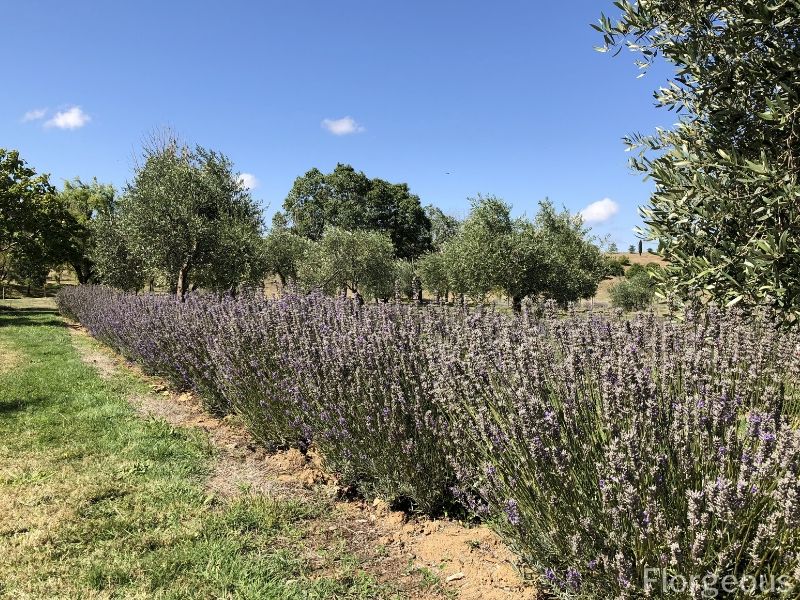
First on the list, lavender. This plant is more than just a pretty face; it’s an effective tick deterrent too. Its strong aroma is believed to repulse ticks, making it a great addition to any tick-prevention garden.
In addition to its appealing scent, lavender’s essential oils can act as a natural repellent, creating a barrier against these critters.
Mint: Multifunctional and Tick Repelling

Next up, mint. Mint works double-time in your garden, serving as both an attractive, fragrant addition and a deterrent to ticks. The potent scent of mint essential oil is off-putting to ticks, making this a great plant to place around your home.
So while you’re enjoying that invigorating scent, you’re also helping keep your garden tick-free.
Lemongrass: Citrusy and Effective Against Ticks
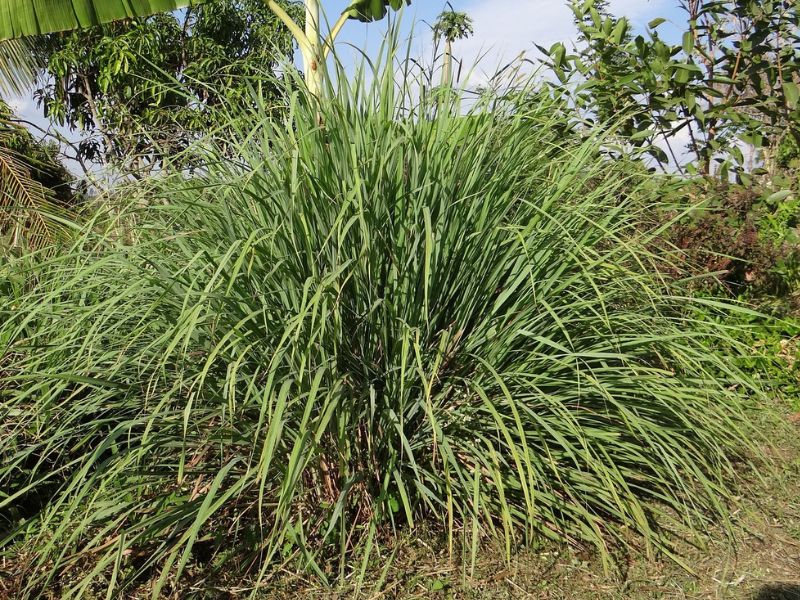
Finally, we have lemongrass. If the vibrant, citrusy note doesn’t win you over, its tick-repelling ability will. Much like lavender and mint, the essential oils produced by lemongrass are a reliable deterrent for ticks. It’s easy to grow and its fresh, citrus aroma will have you – but not ticks – coming back for more.
Flowering Plants That Discourage Ticks
Now that you are familiar with the magic of fragrant herbs in repelling ticks, let’s delve into the world of flowering plants that double up as tick deterrents too.
Marigolds: Bright and Tick-Resistant

Meet Marigolds, your garden’s vibrant warriors against ticks. These bright orange-yellow flowers aren’t just a delight to behold. They secrete a pungent odor that’s pretty off-putting for ticks and many harmful garden pests.
So, when you interplant Marigolds with your other garden plants, you’re setting up a natural defense line against these unwanted intruders.
Chrysanthemums: The Pyrethrin Power

Chrysanthemums or “mums” as they’re fondly called, not only charm up your garden spaces with their explosion of colors. They additionally possess a potent weapon against ticks – Pyrethrin.
This chemical, found naturally in “mums”, is a powerful insecticide that immediately incapacitates any tick or pest that comes in contact with it. So, remember, next time you add a ‘mum’ to your garden, you’re not just adding color, but a relentless tick fighter too.
Herb Varieties That Repel Ticks
Let’s delve into the world of herbs that not only add flavor to our food but serve as tick repelling troopers in your garden.
Rosemary: Herbal Aroma that Ticks Dislike
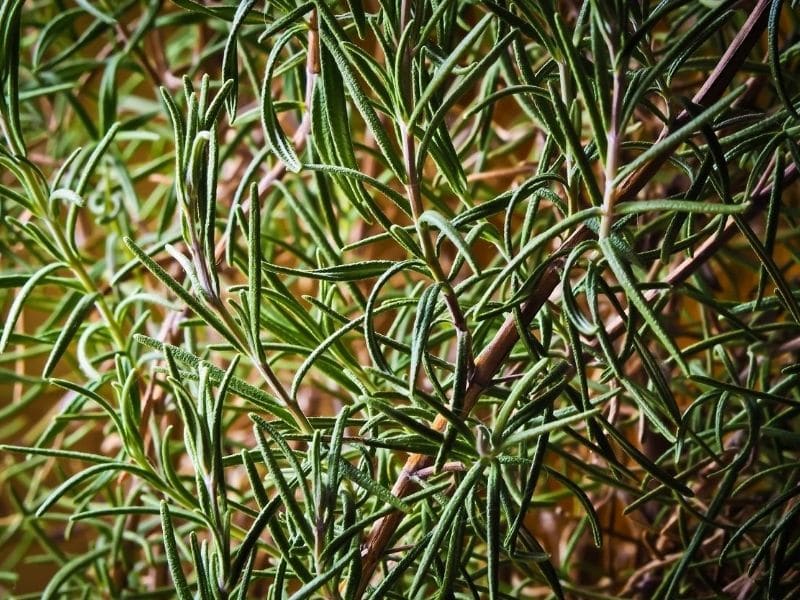
Why not consider rosemary as a frontline defensive plant? Its strong aroma is popular in many kitchens, but ticks find it less appealing.
This aromatic herb, with its needle-like leaves, releases an unmistakable fragrance that wards off ticks effectively. Plant it around the boundaries of your garden for an effective deterrent and bonus culinary benefit.
Garlic: Strong-Scented Tick Repulsion
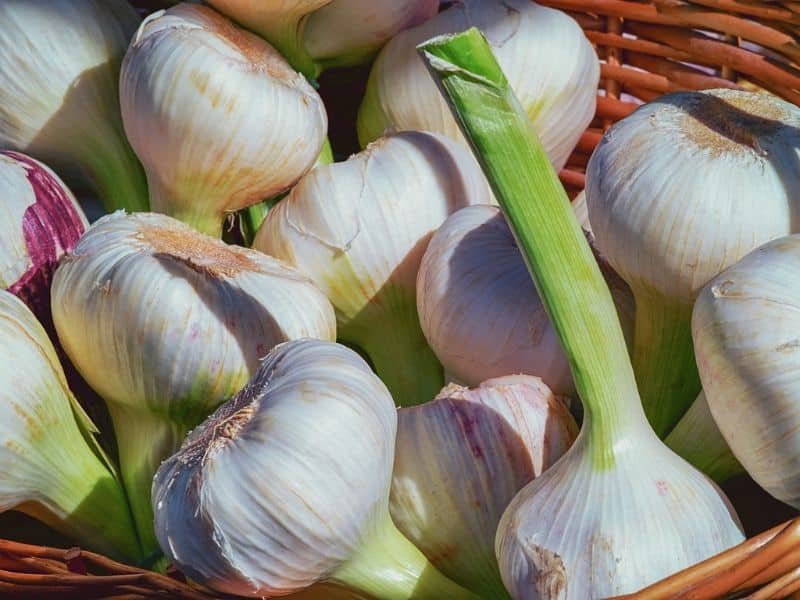
When it comes to a potent aroma, garlic is a sure bet. This powerful herb produces a strong scent that ticks abhor, eliminating your garden as a favorable habitat. Not only does it repel ticks, it’s also a deterrent for other garden pests.
Planting garlic is an easy way to boost your garden’s natural defenses against ticks. Plus, it’s a wonderful addition to your cooking collection as well.
Incorporating Tick-Repelling Plants Into Your Garden
By putting thoughtful design into your garden layout and using companion planting, you increase the tick-repelling power of these plants.
Design Strategies for Tick Prevention
Start by planting tick-repelling plants near areas of your garden where ticks are most likely to enter, such as fences, paths, or next to woodlands.
You could also border your garden with these plants to form a defensive barrier. Remember, ticks do not enjoy crossing through highly aromatic, rough-textured plants, so layering these plants around your yard can effectively keep ticks at bay.
Also, it’s a good idea to strategically place these plants around your patio, outdoor seating areas, and children’s play areas. Ticks usually lurk in cool, damp places. Thus, ensuring that sunlight reaches all parts of your yard can help deter ticks, as these critters don’t thrive in dry, sunny areas.
Companion Planting Tips
Companion planting, or growing different types of plants close together, can be another potent tick defense strategy. Not only do the plants support each other’s growth, but when used logically, their combined fragrances and textures can deter a variety of pests, including ticks.
For example, you could combine flowering plants like marigolds or chrysanthemums with herbs such as rosemary or mint. The strong scents of the herbs blend with the pungent odors of the flowers to form a more complex aroma profile that ticks find profoundly unpleasant.
With companion planting, your garden is not only rich in color and variety, but it also doubles down on tick defenses.
Incorporating these strategies and plants into your garden design can significantly reduce the presence of ticks, making your outdoor space safer and more enjoyable.
Additional Tips for Reducing Tick Populations
Besides incorporating tick-repelling plants into your garden, here are a few extra strategies to help decrease the presence of these bothersome critters.
Regular Garden Maintenance
Neatness counts when you’re trying to keep ticks away. Regular yard cleanups can prevent ticks from establishing a stronghold in your garden. This includes sweeping up leaves, trimming overgrown grass, and disposing of decomposing material that can host ticks.
Furthermore, it’s best to avoid over-watering your plants as ticks thrive in damp environments.
Natural Predators of Ticks
Introducing natural predators into your garden can be an effective way to control tick populations. Birds like chickens and guinea fowls are known to eat ticks and can significantly reduce their numbers.
Additionally, certain insects, such as ants and spiders, are natural enemies of ticks and can help keep their populations in check. Encouraging these predators by providing suitable habitats can create a more balanced and tick-free garden ecosystem.
Creating Tick Barriers
Physical barriers can also help keep ticks at bay. Creating a border of wood chips or gravel between your lawn and wooded areas can prevent ticks from migrating into your garden.
This barrier acts as a deterrent, as ticks are less likely to cross these dry, rough surfaces. Additionally, keeping your lawn mowed and maintaining a clear zone between your garden and surrounding woods can reduce the likelihood of ticks entering your space.
Regular Pet Checks
If you have pets that spend time outdoors, regularly checking them for ticks is crucial. Ticks often hitch a ride on animals, so inspecting your pets after they have been outside can prevent ticks from entering your home and garden.
Using tick prevention treatments recommended by your veterinarian can further protect your pets and reduce the overall tick population in your yard.
By implementing these additional tips alongside planting tick-repelling flora, you can create a multi-faceted approach to keeping your garden tick-free and enjoyable.
Up next:

